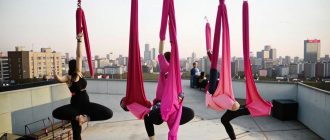Body positivity, i.e. acceptance of one’s body in any form, has been proudly walking the planet for a long time. Designers pay more and more attention to plus size clothes, and advertising campaigns star girls who are far from the usual ideals of beauty and model standards. Supporters say that everyone decides for themselves what to be, and it does not concern others. Like all movements, body positivity has its own explicit and unspoken rules.
1. Accept your body.
Bodypositivity goes back to the simple belief that you shouldn’t judge and categorize people based on their appearance. It’s more helpful to love yourself in whatever way you can – with more weight, height, moles, larger feet – than to hate yourself because of something you don’t want or can’t fix. Brands and glossies actively support this position. For example, model Winnie Harlow with skin pigmentation disorders became so popular.
2. Find 10 traits that you are proud of and remind yourself of your pride every day.
For example, you can love your curls, and be happy every day when you look in the mirror. Don’t dwell on your flaws, think about your strengths,” the body positives urge.
3. Do not compare your appearance with others, there is no need to remember your former self at an earlier age. All body changes are normal.
Such comparisons can badly affect your positive thinking, and you will again form complexes on the background of these too perfect, often photoshopped bodies. The current idol of the movement’s supporters is plus size model Tess Holiday, who last year appeared on the cover of the September issue of Cosmo.
4. Imposed stereotypes shouldn’t get in your way.
Beauty standards are blurred and strict at the same time. Throwing a glance at an attractive full girl, most people note not the charm, but the fact that she needs to lose weight to 90-60-90. And it doesn’t depend on whether or not she has such a goal in her life.
5. True beauty is hidden within us – it’s our spirit.
That, in general, laid down even by our parents: “love not for looks, but for inner qualities”. Probably so, but the fact that each of us will pay attention first to the wrapper, and then to the candy, can not be denied.
6. Choose only what does not make you uncomfortable.
For example, clothes that you feel comfortable in, not clothes that will restrict your movements. Bodypositive people say it’s not a shame to take off a tight bra, it’s a shame to make your body uncomfortable.
7. Instead of counting calories and looking for a new diet, do something really important and healthy.
This is one of the main messages of the movement. By getting too caught up in perfecting our bodies, we waste time we could be using for something more important.
Radical thinking
Most likely, any adequate person would agree with most of these rules. But everything has extremes. So too, someone takes a more radical view of these commandments.
Such activists monitor the wording of users of social networks, and if you use forbidden words like “fat”, “overweight” or even worse, you will be persecuted and minususovaniya.
Grooming is also embargoed. And to enforce this ban, supporters of radical body positivity concoct crazy theories about the dire threats posed by conventional beauty treatments, coupled with the unbearable pain they cause.
Who else is in favor of the idea?
I’ve already mentioned several times the designers and magazines that invite girls who don’t fit the standards to their shows and shoot for their covers. Among the brands that have dared to use the body-positive philosophy in their advertising campaigns are Dove, Lush, and Fenty by Rihanna.
Although back in 1999 Dazed&Confuzed magazine released a sensational cover with Milla Jovovich and her armpits.

But the brand Dressmann showed in their new Underwear for perfect men ad campaign that bodypositivism is not just for women, but for men as well. “Half the population has been cut out of the bodypositivism debate,” according to the brand. And Dressman aims to rectify this by portraying men of different ages, weights, heights and races in its campaign.






